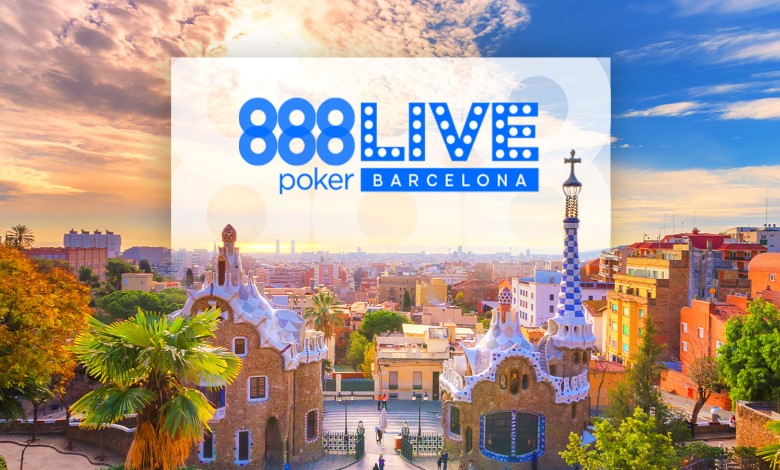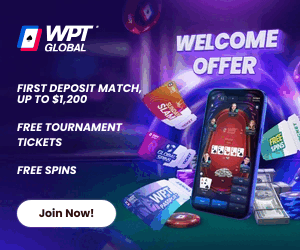The name Nick Jones might not stir immediate recognition among poker players – but make no mistake about it, he’s produced a great deal of stellar work as part of the poker media corps.

The co-founder of pokerfuse and its family of related websites, Jones has kept a relatively low public profile, preferring to let his work speak for itself. With that said, however, it remains my ongoing quest to shine a spotlight on members of the poker media who work so hard to deliver great content to poker fans around the world.
My great thanks, then, to Nick for kindly agreeing to to take part in our Get to Know the Poker Media series. It has been a pleasure learning more about how his career in the poker industry got started as well as a bit about what Nick’s personal life is like.
Without further ado, enjoy the interview!
Back in December 2016, we learned a lot about how pokerfuse started from your co-founder Mike Gentile. How did the two of you first connect and decide to work together?
Mike and I first met in an online poker study group. I think this must have been 2008. We were both playing six-max sit and go tournaments. At that point, I think I had been a professional online poker player for maybe a year or two. Mike was semi-pro, still had a full-time job but making money on the side both live and online. He was looking to go pro. The study group didn’t last long, but we kept in touch and studied together. At some point, Mike quit his job to play online poker full time, and we studied a lot together, doing live sweats and hand reviews.
I think it was 2010 when we first started discussing launching an independent online poker news site. It was in the wake of the Absolute Bet cheating scandal, and as professional poker players we were frustrated at the lack of accurate information on affiliate-backed news sites at the time.
It’s hard now to remember just how things were pre-Black Friday. Today, there’s some great, honest content done on loads of excellent news sites. Back then, there was so much money flowing through the system that getting honest news outside of the forums and smaller poker blogs was quite difficult.
We started to sketch out what we wanted to achieve and were looking at a summer 2011 launch of pokerfuse.com. But then Black Friday happened. We launched a very bare-bones, one-page website up on pokerfuse.com on that very day, 15 April 2011, to basically live-blog the news and the fall-out.
From there, we basically iterated as fast as possible to launch the site. For the first couple of years, I continued playing poker while working on pokerfuse part time. Mike, now effectively out of a job due to Black Friday, worked on the project full time. After a couple of years, I stopped playing to take on the job full time.
One of the more well-known projects that you guys started is Poker Industry PRO. In fact, it seems as though that’s currently your company’s major focus. Tell us a bit about when and how that particular venture started out and how it’s grown since then.
Poker Industry PRO actually launched just two years after pokerfuse did—in April 2013. So it has been around for five years now!
Today is pokerfuse’s 2 year anniversary. And we’re excited to announce the launch of our new product – pokerfuse PRO: http://t.co/R3EBQ7kZOP
— pokerfuse (@pokerfuse) April 15, 2013
In its first iteration, it was named pokerfuse PRO, and we launched it as an extension of pokerfuse: A paid subscription version of the main site, where for a small monthly fee you could read paywall-only, in-depth content and access industry data.
Over the years, we have iterated a lot on this concept. The reality is that getting the numbers right for a paywall site is hard. That’s obviously a problem that is still being worked on in all strands of the media industry.
No great surprise, but it turned out that most online poker players were not interested in paying for content. While we received a very warm welcome early on, and we got a lot of interest from other journalists and those within the industry, the reality was that we didn’t get a critical mass of consumer interest. The small monthly fee helped revenue, but it didn’t transform our business.
We also had much larger ambitions for the platform. We didn’t just want to do paywall content—we always envisaged PRO as a platform for data, analysis, and research. As you can probably imagine, small monthly subscriptions cannot support this vision.

pokerfurse PRO Day 1 launch
Within the first year, pokerfuse PRO was relaunched under a new name, domain and design as Poker Industry PRO. While it was the same team behind the project, we wanted to make a clearer distinction between the two products: PRO was a platform for industry insiders. Pokerfuse was for poker players.
This resonated with our core customer base of industry readers, and we began to see interest from investment firms and industry analysts. We changed the subscription model to sell only company-wide subscriptions. And this helped us expanded the platform greatly. Today, PRO is a lot more than just a paywall news site; honestly, it is barely recognizable to what it was say three years ago.
For example, the PRO Data section is one of the largest resources of industry data available anywhere online. Along with cash game data provided by GameIntel (formerly PokerScout), we track and chart public data across dozens of public companies and jurisdictions. It currently houses some 400 charts across 10,000 data points, all available directly through our web app, and we update it every week.

Poker Industry PRO today
We also maintain a service we call Newsbeat, which is a curation of various sources—news articles, videos, interviews, etc—that we update daily. It spans the last five years and is perhaps the largest searchable index of curated industry content anywhere online. It has grown to a database of well over 30,000 links, all tagged and searchable in our Explore system. We’ve also recently began tracking online promotions and online tournaments worldwide. Already we have over 600 in the database added in the last year and it grows every week.
Our latest development was the launch of PRO Reports, which houses one-off publications on in-depth industry analysis. Last year we published a six-part series on The Stars Group (then Amaya). We followed this up with State of the Online Poker Industry, which was very well received by our customers. We did a print run of that. We’re about to publish a follow-up to that report, and a new series of reports aimed at investors.
What is it that you love about poker that keeps you so interested in the game?
As a game, it is something that appears so simple, engaging and fun on the surface, yet offers near limitless strategic depth. Throw in the drama and psychology and nothing else really comes close. You can play it over beer for pennies with friends, or play it for tens of thousands of dollars live or online, and everything else in between. It’s a great game however you play it.
As an industry, poker is equally fascinating. While it may make up a fraction of the entire online gambling market in terms of revenue, it’s still a multi-billion-dollar business and it terms of raw player numbers, poker is hugely popular. It is unique in how it can market itself: With live tours, with ambassadors, through TV shows and Twitch. It has many unique properties that make it always intriguing to write and think about.
And they’re off.
SCOOP: $65M
Powerfest: $40M
888: $3M
UCOP: €500k
iPoker (just finished): €400k~ 700 tournaments. Biggest ever month for online poker tournaments. https://t.co/4uGtDn3l3z
— Nick Jones (@pokerprojones) May 8, 2018
What sort of jobs did you have before getting into poker media?
I was a professional web developer and designer for six years, from 2001 to 2006. That has served me very well in my current role: While it is not my primarily job at Fuse Media, I do a lot of the web design and development on our sites. RotoTracker and Combonator were both pet projects that I started in my spare time, which were eventually developed as commercial products within the company.
While I worked in London as a web developer, I was playing poker with friends and soon deposited online and played on partypoker, the big site at the time. But I never took the step of taking it very seriously back then. It was a time when, if you read 2+2 and stayed disciplined, you could print money. But I did not get involved in it deeply.
So, I missed the boat on that. Ironically, one of the reasons why is because I actually got on a boat: With the extra money I had made from online poker, I used it to go sailing with a friend for two years, cut off from the online world entirely. So during the 2006 to 2008 period, post-UIGEA when PokerStars and Full Tilt reigned supreme, that whole time I was entirely out of the game.
I ended my travels in Argentina in 2008, where I lived for three years, and that’s when I started to play poker seriously as a job. Since then, poker in some form has been my sole work: As a poker player, as a brief stint as a coach and video instructor, as writer for pokerfuse, and ultimately the business owner of Fuse Media and Editor of Poker Industry PRO. Ten years of poker!
Tell us a bit about your personal life; where you live, family, etc.
After Argentina, I lived in various places and travelled a lot. I spent time in Spain and Italy, travelled in Canada and South America, but ultimately settled back in my home town in south England. I live with my girlfriend, Samantha Bevington, who is also an integral part of the pokerfuse team, writing across all our sites and leading our customer service.
I played my first proper game of poker last night at the PS Media Event in London – thanks to everyone who was so encouraging & friendly!
— Sam Bevington (@SamBevington) January 27, 2017
How often do you play poker? Home games mostly or in poker rooms? Cash or tourneys?
Today, almost never. I made the decision to quit playing in a semi-professional manner a few years back, when I came on to the pokerfuse team full time. Since then, I rarely play unless it is for research purposes for work. I will play a little for fun with friends, and I’ve played a couple small tournaments live. That’s about it.
As opposed to most of the other popular poker media sites out there, your group of sites (pokerfuse, F5poker, Poker Industry PRO) notably opted right from the get-go not to pursue the route of online poker room affiliation as a source of revenue. Why did you make this decision and what would you say are the costs vs. benefits of having made that decision?
Originally, it was borne out of a desire to try something different: Seven years ago, it seemed that affiliates and operators were too closely coupled to be able to offer honest news. I think the idea resonated with many people, and we got a lot of traffic early on. Of course, we weren’t making anywhere near what affiliate-based poker sites were making off that same traffic.
PRO was always going to take a different path. From day 1, we wanted to create a subscription-based product; we wanted to charge for the service we were going to provide. No other monetization path was considered.
The affiliate equation has changed over the years; operators are less reliant on purely affiliates to drive traffic and, in turn, affiliates have more scope to experiment with advertorial content, broaden their remit, and search for alternative or complementary revenue streams.
There has definitely been a shift away from the kinds of content we saw five or so years back, when we never saw content that critical of any operator. Now we’re seeing some of the biggest affiliate sites doing some great content; we’re seeing clearer disclosures of partnerships and ownership; there’s coverage of news whether positive or negative.
That’s exciting, and we want to explore some of these opportunities with pokerfuse and F5 poker this year.
What other hobbies do you have? Tell us about them.
Any and all games, I’ll play. I love chess and backgammon, and have at various points of my life taken them somewhat seriously (though never to the level of poker). I enjoy all card games. And I have a growing collection of modern board games.

Nick’s growing board games collection
I also love to travel whenever and wherever I can, and I like to speak terrible Spanish. I try to ski as much as possible, and I enjoy trail running: I’m keeping close pace with you for 1,000km this year!

Nick, skiing in Italy
After a number of years of relative stagnancy, it’s pretty clear that poker is finally growing once again. In what way do you see your company riding that wave and scaling up over the next couple of years?
The industry is certainly going through a key stage and there’s a lot of exciting development and growth opportunities. We’re seeing—finally—some momentum in the United States, and some of the fragmentation in Europe is also ending.
So, big week in online poker. @WSOPcom joining NJ and NV/DE player pools. @Partypoker also expected to connect Spain and France (@PartyPokerEs just got the platform upgrade in prep). Might see the same at ipoker too.
— Nick Jones (@pokerprojones) April 30, 2018
From the industry side, we’re seeing fresh investment in online poker as it is finally seen as a key piece to the online gambling puzzle: As PokerStars grows into a full gaming vertical, poker will be a cornerstone of its customer acquisition channel. Companies like GVC and Kindred are seeing opportunities by investing heavily in the vertical to grow internally. And there’s new upstarts like Run It Once, plus homegrown operators in India and the rest of Asia. We’re already seeing big investment into the live poker scene. I’m hopeful that this will also lead to innovations in the core online poker product and experience.
For our company, we’re certainly excited. PRO’s remit will only expand, as we look to cover the industry side as it expands into the United States, into emerging markets, and as public companies continue to invest in online poker.
WSOP Makes History With First Three-State Online Poker Player Pool in the United States: https://t.co/GvEx9zvYvK #poker #wsop pic.twitter.com/iRmfv8vkju
— Poker Industry PRO (@pokerindpro) May 1, 2018
The last year has been our most successful by far; we took a big risk developing many of the features we have today on PRO, and took on a big commitment to build new features and maintain a lot of new data and content. But it paid off, and PRO has never been stronger.
And while we have big plans this year and beyond for PRO—including further investment into our growing Reports section—it also allows us to focus back to pokerfuse and our player-focused content. Compared to the work we’ve done on PRO, from the outside pokerfuse may have appeared a little dormant the year or two. But we have been working away at pokerfuse a lot under the hood, and that has ramped up in the last few months.
Very soon, we plan to relaunch the entire site—it will be its biggest redesign in the site’s seven-year history. But it also comes with a fresh investment into news, bringing some exciting new content for online poker players. We will also be experimenting more with different monetization strategies. We have played with some limited affiliated and sponsored content over the last year or two, and we’ll be exploring more ways to introduce this while continuing to provide more content that online poker players will enjoy.
Watch this space!







Comments